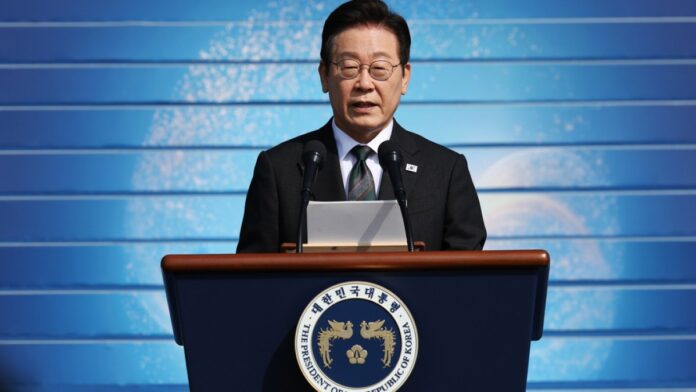Programme, which started after Korean War as a way of removing mixed-race children from society, violated human rights.
Published On 2 Oct 2025
South Korea’s president has apologised for a notorious foreign adoption scheme set up after the 1950-53 Korean War that caused “anxiety, pain, and confusion” to more than 14,000 children sent abroad.
President Lee Jae-myung said in a Facebook post on Thursday that he was offering “heartfelt apology and words of comfort” to South Koreans adopted abroad and their adoptive and birth families, seven months after a Truth and Reconciliation Commission said the programme violated the human rights of adoptees.
Recommended Stories
list of 3 itemsend of list
The commission, which investigated complaints from 367 adoptees in Europe, the United States and Australia, held the government accountable for facilitating adoptions through fraudulent practices, including falsifying records to portray children as abandoned orphans and switching identities.
Lee said he felt “heavy-hearted” when he thought about the “anxiety, pain and confusion” that South Korean adoptees would have suffered when they were sent abroad as children, and asked officials to formulate systems to safeguard the human rights of adoptees and support their efforts to find their birth parents.
Mass international adoptions began after the Korean War as a way to remove mixed-race children born to local mothers and American GI fathers from a society that emphasised ethnic homogeneity, with more than 140,000 children sent overseas between 1955 and 1999.
Foreign adoptions have continued in more recent times, with more than 100 children on average, often babies born to unmarried women who face ostracism in a conservative society, still being sent abroad for adoption each year in the 2020s.
After years of delay, South Korea in July ratified The Hague Adoption Convention, an international treaty meant to safeguard international adoptions. The treaty took effect in South Korea on Wednesday.
Former president Kim Dae-jung apologised during a meeting with overseas adoptees in 1998, saying: “From the bottom of my heart, I am truly sorry. I deeply feel that we have committed a grave wrong against you.”
But he stopped short of acknowledging the state’s responsibility for the decades of malpractice.


